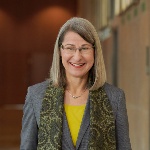Quantum programs, too, can be mistaken. Researchers from the Software Lab at the Department of Computer Science at the University of Stuttgart are investigating methods of how the results delivered by these programs can be reliably verified. As part of the new “QPTest” project by the German Research Foundation (DFG), they want to develop a comprehensive testing framework for quantum computing platforms.
Where conventional computers reach their limits, quantum computers will be able to solve complex problems many times faster in the future. However, it is not yet possible to reliably verify how consistent the results delivered by quantum computing platforms are. The project “QPTest: Automated Testing of Quantum Computing Platforms“ of the Software Lab at the Department of Computer Science at the University of Stuttgart is intended to change this. The researchers want to systematically identify bugs in quantum computing software platforms and thereby ensure reliable computation.
Using quantum computers efficiently
“Quantum computers revolutionize computation and, at the same time, present us with new software challenges,” says Prof. Dr. Michael Pradel, Head of the Software Lab and Managing Director of the Institute of Software Engineering (ISTE) at the University of Stuttgart. “The quality of software platforms will be crucial for using quantum computers effectively,” explains the expert in failure analysis of traditional computer infrastructures and quantum computing platforms. To be able to ensure this quality, the scientists need a programming framework in which novel, automated testing procedures can be used. As part of “QPTest”, Pradel and his team want to develop and try out such a framework.
No two program runs are the same
Unlike classical bits, quantum mechanical bits, in short qubits, are able to occupy the states 1 and 0 simultaneously. Qubits are the basis for computations on powerful quantum computers, which are intended to be used in simulation science, cryptography, and AI applications, among other things. However, no two program runs are the same. There are no unique and reproducible results. Instead, the systems deliver a probability distribution over states that were measured on qubits. If the probability distribution deviates from expected values, this may suggest a critical error within the platform used or just indicate that noise from the underlying hardware is interfering with the computations. Consequently, the researchers cannot rely on conventional, standardized test routines and are developing their own framework for the novel computing paradigm.
QPTest in combination with open-source platforms
At the end of “QPTest”, the scientists want to be able to identify real bugs in quantum computing platforms reliably and with a small number of program runs. In addition, statistical correction methods are to reduce the number of false alarms. The researchers aim to evaluate the findings they make in the course of the project on common open-source platforms such as Qiskit (IBM Research) and Cirq (Google). These platforms provide computer scientists with tools and resources to develop quantum algorithms and write quantum programs. “If our project is successful, we will then be able to lay the foundation for the automated examination of quantum platforms for errors,” Prof. Pradel points out.
About QPTest
The project “QPTest: Automated Testing of Quantum Computing Platforms“ is scheduled to start in early 2024 and is planned to run for three years. The German Research Foundation (DFG) is funding the project with EUR 394,000. QPTest was initiated by Prof. Dr. Michael Pradel, Head of the Software Lab and Managing Director of the ISTE.
Expert Contact:
Prof. Michael Pradel, University of Stuttgart, Managing Director of the Institute of Software Engineering (ISTE), phone: +49 711 685-88320, E-Mail

Jutta Witte
Dr.Scientific Consultant



